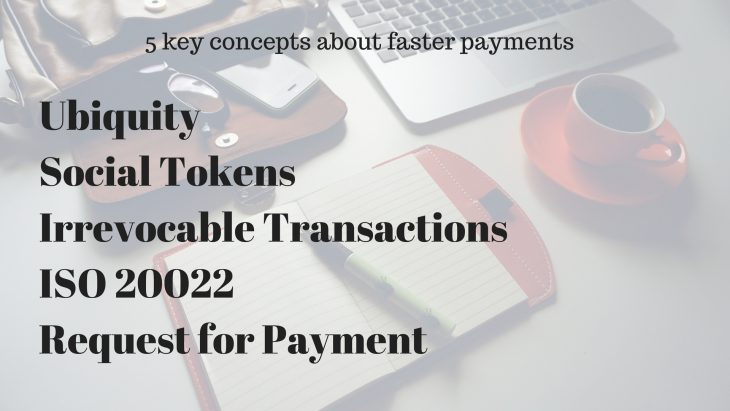Ubiquity: payment systems have strong ‘network effects,’ gaining value exponentially as end points increase. The opposite is also true, uncertainty of acceptance exponenaitlly diminishes value. If faster payments can’t gain universal, or at least very broad, acceptance the market risks adding/maintaining yet another payment scheme while retaining the burden of less efficient solutions.
Social Tokens: most commonly a phone number or email, are helpful because they’re known substitutes for sensitive account numbers – and consumers and businesses are actively using them. The problem is people change phone numbers and emails…
Irrevocable Transactions: faster payments’ advantage is… speed. But once delivered near-instantly, they can’t be called back. There is no consistency among financial institutions for how to handle settlement.
ISO 20022: used by many global faster payment platforms, and recommended for the US. It offers two benefits: increased financial details accompany transactions, like invoice numbers. Second, common standards are a stepping stone to global interoperability.
Request for Payment: are messages like email or text or app notifications, requesting payments direct from consumer bank accounts. They’re useful for merchants as they reduce processing costs and increase speed – but for consumers the value is less clear, they give up the protections afforded by credit cards.
Data for this episode of Truth In Data provided by Mercator Advisory Group’s report Faster Payments Forecast, 2017-2021, Update: The consequences of Faster Payments











